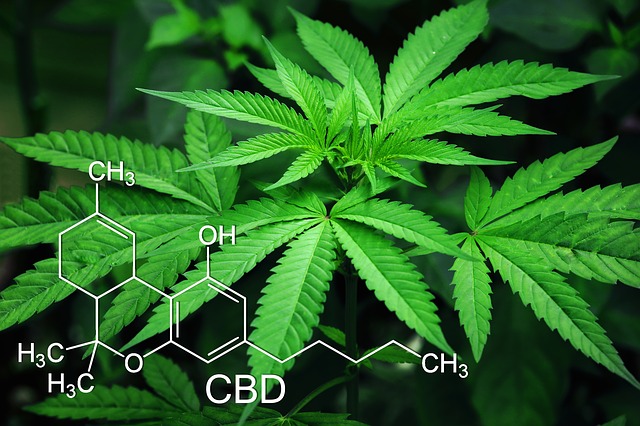Diabetes mellitus is a group of autoimmune diseases characterized by defects in insulin secretion resulting in hyperglycemia (an abnormally high concentration of glucose in the blood). There are two primary types of diabetes.
Individuals diagnosed with type 1 diabetes (also known as juvenile diabetes) are incapable of producing pancreatic insulin and must rely on insulin medication for survival.
Individuals diagnosed with type 2 diabetes (also known as adult onset diabetes) produce inadequate amounts of insulin.
Type 2 diabetes is a less serious condition that typically is controlled by diet. Over time, diabetes can lead to blindness, kidney failure, nerve damage, hardening of the arteries and death.
The disease is the third leading cause of death in the United States after heart disease and cancer.
A search of the scientific literature reveals no clinical investigations of cannabis for the treatment of diabetes.
But does identify a small number of preclinical studies indicating that cannabinoids may modify the disease’s progression and provide symptomatic relief to those suffering from it.
[1-2] A 2006 study published in the journal Autoimmunity reported that injections of 5 mg per day of the non-psychoactive cannabinoid CBD significantly reduced the incidence of diabetes in mice.
Investigators reported that 86% of untreated control mice in the study developed diabetes. By contrast, only 30% of CBD-treated mice developed the disease.
[3] In a separate experiment, investigators reported that control mice all developed diabetes at a median of 17 weeks (range 15-20 weeks), while a majority (60 percent) of CBD-treated mice remained diabetes-free at 26 weeks.
[4] Other preclinical trials have demonstrated cannabinoids to possess additional beneficial effects in animal models of diabetes.
Writing in the March 2006 issue of the American Journal of Pathology, researchers at the Medical College of Virginia reported that rats treated with CBD for periods of one to four weeks experienced significant protection from diabetic retinopathy.
[5] This condition, which is characterized by retinal oxygen deprivation and a breakdown of the blood-retinal barrier, is the leading cause of blindness in working-age adults.
Cannabinoids have also been shown to alleviate neuropathic pain associated with the disease.
A pair of studies published in the journal Neuroscience Letters in 2004 reported that mice administered a cannabis receptor agonist experienced a reduction in diabetic-related tactile allodynia (pain resulting from non-injurious stimulus to the skin) compared to non-treated controls.
[6-7] The findings suggest that “cannabinoids have a potential beneficial effect on experimental diabetic neuropathic pain.”
A 2001 trial demonstrated that delta-9-THC could moderate an animal model of the disease by reducing artificially-elevated glucose levels and insulitis in mice compared to non-treated controls.
[8] Most recently, an international team of researchers from the United States, Switzerland and Israel reported in the Journal of the American College of Cardiology that the administration of CBD reduces various symptoms of diabetic cardiomyopathy (weakening of the heart muscle) in a mouse model of type 1 diabetes.
Authors concluded, “[T]hese results coupled with the excellent safety and tolerability profile of CBD in humans, strongly suggest that it may have great therapeutic potential in the treatment of diabetic complications.”
[9] With the incidence of diabetes steadily increasing in both the adult and juvenile population, it would appear that further cannabinoid research is warranted in the treatment of this disease.
You can find much more information on living a holistic lifestyle in these free magazines and on our YouTube channel.
REFERENCES
[1] Croxford and Yamamura. 2005. Cannabinoids and the immune system: Potential for the treatment of inflammatory diseases. Journal of Neuroimmunology 166: 3-18.
[2] Lu et al. 2006. The cannabinergic system as a target for anti-inflammatory therapies. Current Topics in Medicinal Chemistry 13: 1401-1426.
[3] Weiss et al. 2006. Cannabidiol lowers incidence of diabetes in non-obese diabetic mice. Autoimmunity 39: 143-151.
[4] Ibid
[5] El-Remessy et al. 2006. Neuroprotective and blood-retinal barrier preserving effects of cannabidiol in experimental diabetes. American Journal of Pathology 168: 235-244.
[6] Dogrul et al. 2004. Cannabinoids block tactile allodynia in diabetic mice without attenuation of its antinociceptive effect. Neuroscience Letters 368: 82-86.
[7] Ulugol et al. 2004. The effect of WIN 55,212-2, a cannabinoid agonist, on tactile allodynia in diabetic rats. Neuroscience Letters 71: 167-170.
[8] Li et al. 2001. Examination of the immunosuppressive effect of delta-9-tetrahydrocannabinol in streptozotocin-induced autoimmune diabetes. International Immunopharmacology (Italy) 4: 699-712.
[9] Rajesh et al. 2010. Cannabidiol attenuates cardiac dysfunction, oxidative stress, fibrosis, and inflammatory and cell death signaling pathways in diabetic cardiomyopathy. Journal of the American College of Cardiology 56: 2115-2125.






